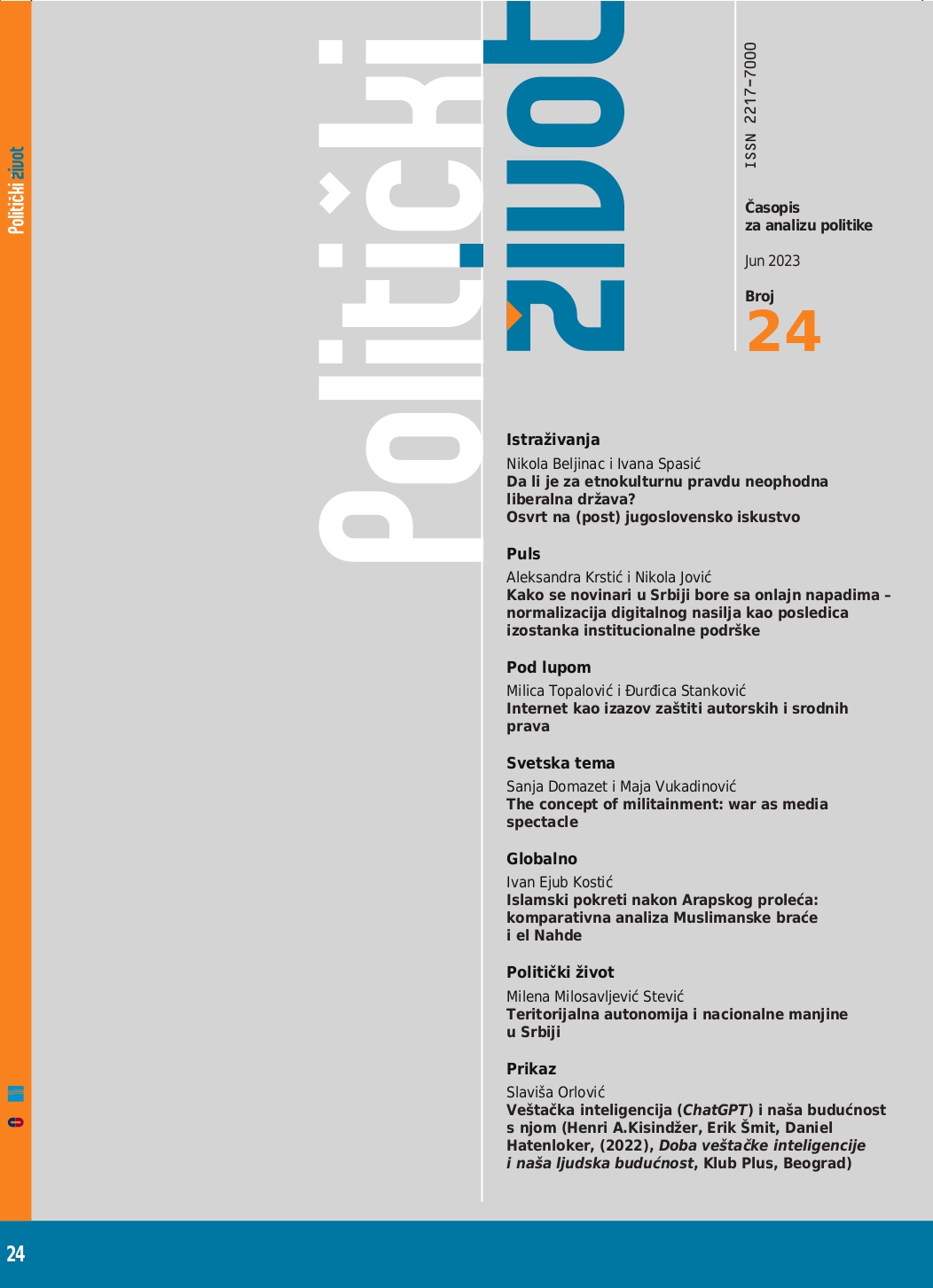Da li je za etnokulturnu pravdu neophodna liberalna država? Osvrt na (post) jugoslovensko iskustvo
Does ethnocultural justice require a liberal state? Reflections on the (post) Yugoslav experience
Author(s): Nikola Beljinac, Ivana SpasićSubject(s): Politics / Political Sciences, Political Theory
Published by: Fakultet političkih nauka Univerziteta u Beogradu
Keywords: ethnocultural justice; liberal multiculturalism; actually-existing socialism; Yugoslavia
Summary/Abstract: In this paper, we start from the argument that the liberal model of ethnocultural justice, based on the idea of multicultural citizenship, which was instituted in the successor countries of the former Yugoslavia twenty years ago, has failed to deliver on its promises: ethnic distance between citizens of different ethnocultural backgrounds has not been reduced, integration is still a problem, and group-differentiated rights often turn into instruments of domination within and between communities. Against this backdrop, we will go beyond the usual immanent critique of this model and point to valuable experiences of public recognition of ethnocultural diversity in socialist Yugoslavia. By doing this, we intend, first, to question the assumption that the liberal-democratic political framework is a necessary precondition for ethnocultural justice, and second, to open up space for reconsidering some potentially positive aspects of the non-juridical approach to multiculturalism that was implemented in actually-existing socialism. We point out three aspects as particularly relevant: a) a „right measure” of jurisdification, b) localization instead of centralization of minority communities, and c) availability of an encompassing, overarching identity in which all citizens can recognize themselves.
Journal: Politički život
- Issue Year: 2023
- Issue No: 24
- Page Range: 7-25
- Page Count: 19
- Language: Serbian

